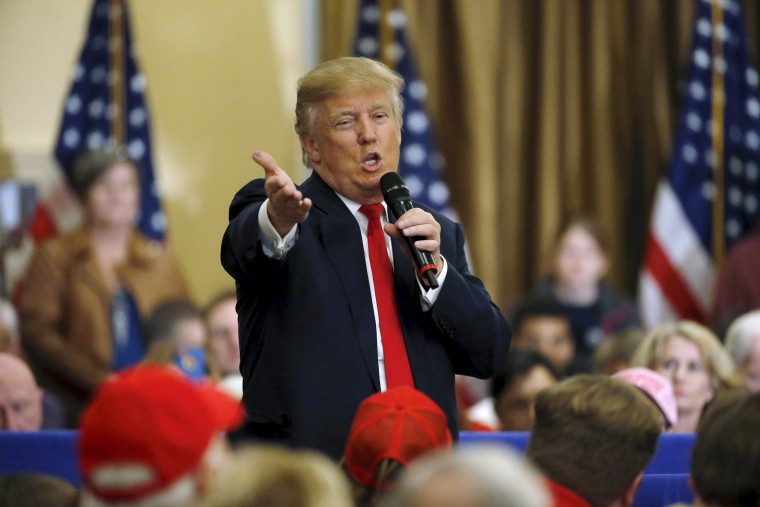NEWBERRY S.C. – Welcome to Trump Country – at least, that’s according to most people here.
On paper, Newberry County, should be good territory for social conservative candidates seeking the GOP nomination because it holds a large evangelical Christian population that identify as “values voters.”
But as voters head to the polls in South Carolina, it’s New York businessman Donald Trump who holds a sizable advantage in most polls and this small rural community helps explain why.
There are signs of a class war in the GOP.
“Pretty much all I’ve been hearing here is Trump,” says Mary McDonald, co-owner of As Time Goes By, a local antique shop. “And yes it surprises me. But they think the country is going to hell and he’s going to pull us out of it.”
Newberry County sits just north of Columbia in what is considered the Midlands area of the state. It consistently votes Republican in presidential elections and a good portion of its population, about 20%, is white evangelical, according to 2010 data from the Association of Religion Data Archives.
But some of the other numbers in Newberry show what may be at the core of Mr. Trump’s strength here. Only about three-quarters of the population has a high school diploma – far below the state average of about 85 percent – and the median household income in the county is less than $42,000 a year, about $3,000 below the state average.
Polls show Mr. Trump does better with those who have lower education levels and incomes.
Coleman Lawrimore, chairman of the Newberry County Republican Party, says the groundswell of support for Mr. Trump has come as a surprise to him.
At a county GOP meeting a few weeks ago, Rep. Mick Mulvaney asked the assembled group, about 40 people, who they were planning to support in the primary. “Only two people admitted they were voting for Trump,” Mr. Lawrimore says.
But later, Mr. Lawrimore talked to other people around the area and heard a different story. “There is a lot of support for Trump here,” he says. “People are angry. The Republican Party has made promises for the last few cycles. They said, ‘Just give us both houses of Congress.’ Well, now they have both houses of Congress and nothing has changed.”
One of the people Mr. Lawrimore talked to was contractor Thadd Mays, a strong Trump supporter. “I have not found a single business owner here who is not voting for Trump,” Mr. Mays says. “What’s going on is people don’t like what’s going on. Trump’s a businessman. He’s self-made. He understands.”
To be clear, the business owners Mr. Mays is talking about are not big, Wall Street type operations. Newberry is a small town full of small businesses – contractors, auto repair shops, electricians – that have had a harder time in the post recession economy
Driving into the city of Newberry, the county seat, a line of old mansions leads downtown to Main Street full of small and storefronts, many of which are empty. It’s a familiar scene is small cities across the south and, for that matter, the country – a place that has seen its share of hard times in recent years.
Could the white evangelical vote be a difference maker and serve as counterbalance to those economic concerns? Maybe, but the white evangelical population in South Carolina is not the powerful political force it once was. Only 26 percent of South Carolina’s population identifies as white evangelical today, according to data from the Public Religion Research Institute. In 2007 that number was 36 percent, according to the Pew Research Center.
And the truth is there are many places with economic concerns in South Carolina. There are 46 counties in the state and in 20 of them 80 percent of less of the population has a high school diploma. In 34 of the state’s counties the median household income is below the state average.
Or to put it another way, the numbers and voices on the ground say Newberry County is good territory for Mr. Trump. And there are a lot of places similar to Newberry County in South Carolina.
